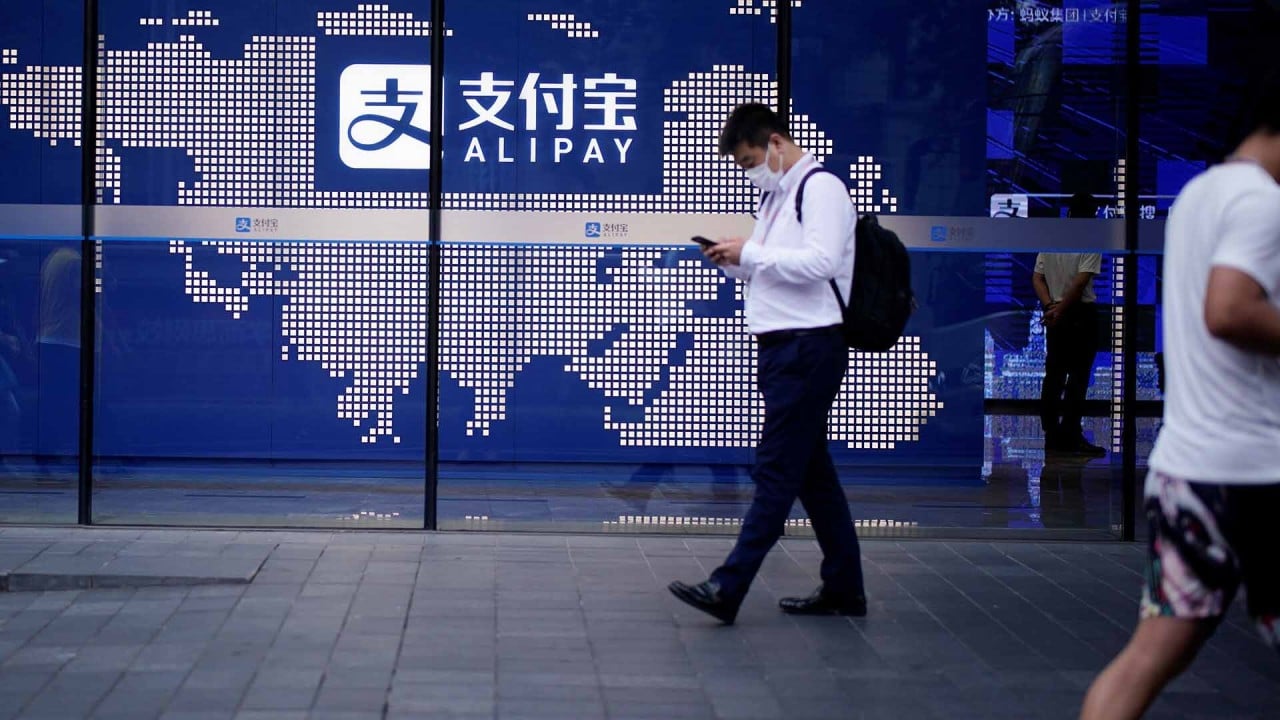
Airwallex’s value swells to US$2.6 billion as Greenoaks leads investors to add US$100 million to fintech start-up’s Series D round
- The fintech’s valuation has nearly tripled to US$2.6 billion over two years, boosted by the global economy’s digitisation
- Airwallex will launch in the US within a couple of weeks, taking on payments giant Stripe
“The world will only become more digital, and with more businesses than ever now operating online, Airwallex has proudly been at the centre of this evolution,” said Jack Zhang, the start-up’s co-founder and CEO, in a statement announcing the fundraising.
Airwallex was wrapping up the first leg of its Series D fundraising in March during a meltdown of global financial markets. Several investors pulled out or scaled back their investments into the fintech.
Then, business picked up as stay-at-home orders during the coronavirus pandemic accelerated the shift from traditional banking to online payments and virtual banking. Investors flocked back to Airwallex, and new investors approached the Melbourne and Hong Kong-headquartered firm hoping to diversify their portfolios across the Asia Pacific, so it reopened its Series D round in September and cherry-picked backers.

Airwallex did not let back in all of the money managers that had dropped out in March. “We think it is very important to keep your commitment,” said Chinese-Australian entrepreneur Zhang in an interview with South China Morning Post.
Despite the recent slide in publicly traded technology stocks, investors are still offering cash to privately owned Airwallex at valuations well above its current US$2.6 billion valuation, said 36-year-old Zhang. The original target for its latest fundraising round was between US$150 million to US$200 million, the latest extension lifts it above that level to US$300 million, a sign of how the digitisation of swathes of the global economy has transformed the prospects of many start-ups.
As global retail e-commerce volume continues to rise, revenue the companies processing these payments can collect as fees will increase from US$82 billion in 2018 to US$138 billion in 2024, according to researchers at Insider Intelligence.
“We believe Airwallex is building a powerful global payments business, with a rich product suite that helps companies simplify their financial infrastructure as they scale globally,” said Greenoaks’ partner Patrick Backhouse.
It has already established a beachhead in the US, the world’s largest financial market and plans to launch its US products in a couple of weeks. After recently securing money transfer licenses in Texas, Florida, and California, this became possible. It now has 33 statewide licenses.
It has hired a team on the ground, established partnerships with US banks, and plans to use its office in San Francisco as a launch pad. US businesses’ shift to digital payments has boosted demand to transact in local currencies, versus contract negotiation in US dollars, and therefore the need for multicurrency financial services products. Last year, Airwallex broadened its suite of products and applications to include multicurrency debit cards.
“Customers are moving from Stripe to us, partly due to our multicurrency [capabilities] and global coverage,” said Zhang, adding that opportunities in the US will drive significant revenue growth for Airwallex over the next couple of years.
Airwallex is ploughing its revenues and the venture capital it has collected into its growth spurt. However, its financials look increasingly healthy even as the company scales. Airwallex is on track to hit a US$100 million gross profit run rate this year.
“We’re probably looking at 2023, 2024 for group-level profitability,” said Zhang.
Airwallex can layer on higher-margin products on top of its payments gateway, such as treasury and bank-accounts services for small-and-medium companies. Roughly 30 to 50 per cent of clients use more than one Airwallex product in Australia.
Managing such a fast-growing start-up has become easier during the pandemic said Zhang has not left Hong Kong in about a year.
“This is the most efficient way I’ve ever worked,” said Zhang. Instead of flying to the US to woo clients, who might not sign up despite receiving a personal visit, he hobnobs remotely with business leaders, such as Zoom CEO Eric Yuan, one after the other.
Bottlenecks in Airwallex’s spectacular growth include human resources. Airwallex will nearly double its headcount this year as it fills 500 vacancies globally.
Onboarding people has become challenging during the pandemic, including making them feel part of the team virtually while at the same time keeping the company culture intact. Zhang said he was personally spending a lot of his time on this.
Another hold up is licenses. Financial regulators require start-ups to open an office in their jurisdiction before granting e-money licenses. The company is also building on its banking network across the Middle East, Eastern Europe and Africa. It is pursuing licenses in Japan and Malaysia.


